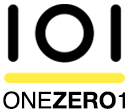What if we stopped and said ‘just give me one thing that would give me energy, efficiency, results and elation?’
You surely would be tempted to think ‘we’re talking about narcotics are we?’, or maybe you might think ‘are we referring to those spiked-up energy drinks?’ Perhaps, and even hopefully, you might even reflect that the genesis of such satisfaction should and surely only could come from the warm embrace of a loving relationship. But what if we said it was how I experience my work? Wouldn’t that make life all the more merrier, and assuage the almost perpetual frenzy of madness that we encounter day to day, as we try and elastically fit more into the seams of life. At least that’s what many of my days feel like.
A thing called flow
The antidote, or certainly a big relief for the constant state of frenicity that I have found one can suffer from these days, is a thing called Flow. I’m sure you’ve heard of it, and definitely experienced it. Whether that was a time when you lost hours doing a jigsaw, or just couldn’t get away from that book on an autumn afternoon nestled in a comfy chair. But let’s start with understanding more deeply ‘what is flow?’ Flow is a concept introduced by psychologist Mihaly Csikszentmihaly in his 1990 book titled Flow: The Psychology of Optimal Experience. In his research, Csikszentmihalyi described flow as a state of concentration so focused that it amounts to absolute absorption in an activity, leading to a sense of ecstasy and clarity. His studies were foundational in positive psychology, exploring how individuals can achieve happiness and optimal experiences through deeply engaging activities.
In his book, Csikszentmihalyi encourages the reader to find their flow, rather than go with the flow. To take charge of setting a positively controlled environment where you behold clarity of purpose, fine-tune of senses, dismiss self-consciousness, gamify work and choose enjoyment over gratification. I believe in all those things, but being time-starved as I am, I’ll cut to the chase here and share how it’s worked for me. And that’s by applying routine discipline, immersive attention and activity demarcation.
Flowing
In my client work, I will try and schedule big blocks of time on certain activities that require immersion – a big piece of strategic analysis, developing a milestone board deck, writing a complex storyline etc. When turning into those windows of precious time, I treat them as just that – precious. I turn notifications off, I ensure that there isn’t a meeting that I need to ‘nip out to’, and I resist, as difficult as it is, checking in on mails, messages and social feeds.
In my task-prioritisation, I recast my to-do list as many as 3-4 times a day. Sure – you can become a tick-junkie and slavishly succumb to the dopamine hit, but maybe that’s not so bad. A bit more importantly for me, I find the refresh process helps to percolate the urgent versus the important, and allocate time accordingly, and definitely what I’m procrastinating about. And when I am procrastinating, and maybe dreading that next big ‘think-through’ that needs to be done, just getting started is the best soother I’ve found. If I focus, calculate and commit to the first step, and free my mind from the other distractions all about, all of a sudden I can be half way there and feeling like I’m winning.
And in my personal life I have become much better at ‘closing the mental doors’ between work, family and play. When I’m doing one, I’m not doing the other, or I’m certainly trying not to. This kind of compartmentalisation helps me be present in whatever I’m doing, and the immersion that follows frees the mind, inspires the creative and fuels productivity all leading to a deeper sense of satisfaction and dare I say wellness.
The Rub
Flow is a powerful state of mind borne from practical practices and mental discipline that is actually quite easily architected, but when harnessed can lead to joyful achievement, and enhancements in both personal fulfilment and professional productivity. I don’t know, but my reflection for the day is, why don’t I flow more? Do I believe that perpetual context switching, chasing and driving across a complex landscape of pursuits, thus continually pivoting (as they call it) and adjusting, is healthy and hasteful? No. Do I think that applying the kind of discipline I espouse, to enjoy the benefits I relish, is right? Yes. Maybe we all need to flow in unison, as it appears to me that it’s the necessity to synchronise that might be the secret, enabling us to flow as one.
The US observes every May as Mental Health Awareness Month, so this short perspective is perhaps timely. 1 in 8 people are estimated to be experiencing some degree of mental health challenge, exacerbated by the stresses and strains of modern life. So stop a moment and do what you can to mind yourself, and those around you, to help safeguard against one of the most inappreciable and disabling spectrum of illnesses we know.
Garvan Callan is a Board-level and c-suite transformation adviser, speaker, lecturer, Non-executive Director and author who works across sectors and regions to bring strategy in to execution, the power of digital culture and innovation to the fore, and help leaders and their businesses prepare for tomorrow, today. He is the author of Digital Business Strategy: How to Design, Build, and Future-Proof a Business in the Digital Age.

